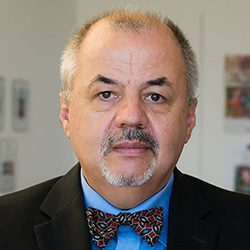Follow-up event on 24 April 2015:
MIKTA diplomacy – current developments and vision for the future
MIKTA countries (Mexico, Indonesia, Republic of Korea, Turkey and Australia) and DiploFoundation convened a seminar to provide the opportunity for the academic and diplomatic community to share views and perspectives on how MIKTA can influence the agenda of International Geneva in the diverse issues addressed such as health, humanitarian affairs, trade and UN reform.
Follow-up event:
MIKTA diplomacy – current developments and vision for the future , 24 April 2015
UPDATES:
Programme
10.00 – 10.30 Coffee
10.30 – 10.40 Welcoming remarks
10.40 – 11.30 Geneva-based diplomacy and MIKTA initiatives
-
Trade and development (Professor Raymond Saner, International Relations & International Management Sciences Po, Paris & University of Basle). The presentation is available at this link.
-
Humanitarian affairs and disaster reduction (Ambassador Toni Frisch, former Head of the Swiss Humanitarian Aid Unit)
-
Governance and UN reform (Dr Petru Dumitriu, Lecturer in Multilateral Diplomacy – DiploFoundation and Permanent Observer of the Council of Europe to the United Nations Office in Geneva)
-
Health diplomacy (Dr Daniel Low-Beer, Visiting Fellow at the Global Health Programme, The Graduate Institute)
11.30 – 12.00 Discussion (moderated by Dr Jovan Kurbalija, director of DiploFoundation)
12.00 – 12.15 Concluding remarks and way forward
12.15 – 13.30 Lunch
About MIKTA
Mexico, Indonesia, the Republic of Korea, Turkey, and Australia have recently developed a cooperation scheme within the framework called MIKTA. MIKTA countries totalise a population of over 500 million people, a GDP of 5.6 billion USD and 1.5 trillion in trade. They represent open economies; have strong domestic markets, moderate inflation and populations with rising purchasing power; are developing resilient economies with potential for high growth rates, while consolidating democratic processes. They are all “bridge countries” in their respective regions. MIKTA is based on a common interest in strengthening multilateralism by supporting worldwide efforts for stability and prosperity, facilitating pragmatic and creative solutions to regional and international challenges and implementing the needed reforms in global governance structures.
Background materials
Prof. R. Saner:
- Could Plurilateral Agreements Provide a Way forward out of the Current Impasse of the WTO/Doha Round?
- Plurilateral Agreements: Key to Solving Impasse of WTO/Doha Round and basis for future Trade Agreements within the WTO Context
- Global Economic Governance from the Perspective of a "Small State": The Case of Switzerland
Contact
For more information about Diplo and MIKTA, please contact Tereza Horejsova at terezah@diplomacy.edu






